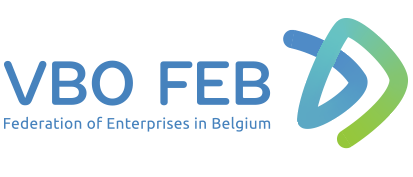29 January, 2024
#46 Portrait from a male ally of women in finance: Didier Lannoy
Do you consider yourself a male ally? If yes, what triggered this?
Yes, I certainly consider myself a male ally. I’ve always considered men and women to be equal including when it comes to job positions. There is however one particular event that really opened my eyes, and this took place when I changed jobs. At my previous employer, the team I worked in was composed nearly exclusively of men whereas, at my new employer, I was integrating a mixed team and there I realized the benefits of a diverse team. It was literally an eye-opener. My new team was more efficient and much more creative.
Another situation that made me realize the benefits of diversity was a study conducted by McKinsey on gender diversity. This study contained many statistics on the positive impacts of diverse teams. Seeing the reaction of some male colleagues during the presentation, made me realize that diversity is not a given. Luckily such reactions are not that frequent anymore nowadays however it has not completely vanished.
Why do you believe that male allies are necessary?
Changes don’t happen on their own. If women fight alone for their rights, they will never succeed. We need to work together to change. Women and men have different mentalities and is the combination of both that makes us progress.
Please provide a concrete example when you act as male ally?
Every year we hire 2 graduates for my department (Global Markets, i.e. BNP Paribas Fortis’ dealing room) and it’s very important to me that we have a man and a woman with one caveat though: they must have equal capabilities. In previous years, we had 10-15% female applications. We then worked on the job description to make it more gender diverse. As such, we included among others a sentence to reinsure potential candidates that even if they believe not having all the required skillsets, it’s still worthwhile applying. Since then, we have received 30% of female applications! This really shows that a more diverse job description has an impact.
Although I wasn’t a big fan of quotas, I’ve come to consider them as a necessary step without which it will be difficult to really make substantial progress in gender diversity. That being said, you need to apply them while taking into account competences. A job should never be given only because the person is a woman. If we do this, we don’t do any favours as we expose the person to failure.
What advantages do you see for men to be part of a more diverse workplace?
Working in a diverse environment has benefits for all. Mentalities are different and every one benefits from the different approach that the other one brings. Having a diverse and inclusive workplace is a win-win.
Have you had a male ally role model?
Yes, my previous manager was a role model. I worked with him on gender diversity within the department.
How do you convince other men to take an active role to advance gender diversity?
Walk the talk!
First of all, I show it through my actions like hiring female candidates, favouring mixed teams, etc. I also explain the positive impacts of working in a diverse team and how I experienced it myself years ago when changing jobs. Obviously, there are men who will never be convinced but there are more and more who are receptive to the idea of more diverse teams.
I’m Single Point of Contact (SPOC) for diversity and inclusion of the Corporate Banking division.
One of the actions we’re currently undertaking is the organisation of a specific workshop with some of our female senior managers. The idea is to try and identify the different obstacles they have been faced with in their career, which might explain why there still is a glass ceiling for women, and how they overcame them. Based on the outcome of that workshop, we will then be in a better position to take positive actions to remove as much as possible that glass ceiling. Such positive actions should entail a good dose of inclusive leadership philosophy, because it is only through a real inclusion that we will truly foster diversity.
A few years ago we had organized a training path to that effect exclusively for our female talents. With hindsight I reckon it wasn’t the best approach. We need to sponsor talent equally for men and women, because both need to be convinced and trained if we want things to move forward.
I find it important to continue talking about this topic. Having diversity weeks in your organization helps, however this topic needs to be a ‘standing point’ at appraisals, in meetings, included in talent management, etc.
On a personal level, why is gender diversity important?
Apart from having a vested interest in promoting gender diversity in the workplace, I also do it for my daughter!
I also find important to work on stereotypes like for example the term “alpha male”. What is actually considered as an alpha? When you look at animal behaviours, you will see that it’s not always the males that are the alpha. Sometimes, it’s a female and in many cases, you see that the alpha (male or female) in fact is not the strongest and most bullying one, but on the contrary the one which is supportive, compassionate and serves as peacekeeper by putting the needs of the group ahead of his/her own.
If you had a wish, what would you want to change?
I think we are heading in the right direction; however, if I had a wish, I would want a wider pool of female candidates for the very specific types of jobs we have in the dealing room.



